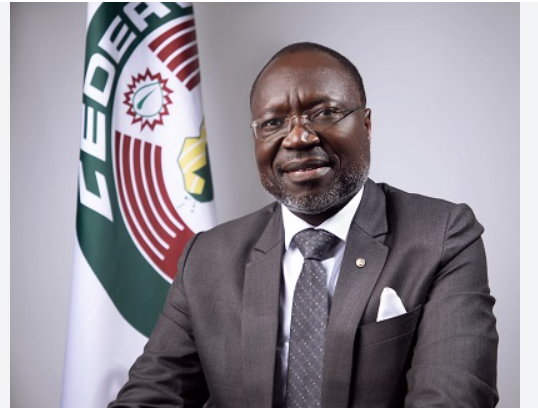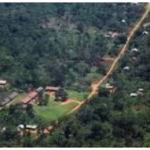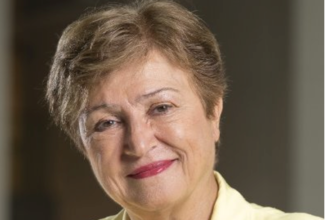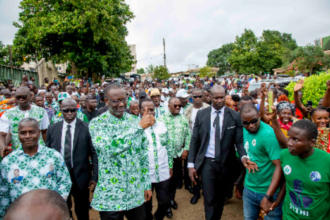By Abu Hassan
Seme Border Post, Nigeria – In a stinging assessment of the Nigeria-Benin Republics border post, ECOWAS Commission President Dr. Omar Touray condemned the current state of disrepair and inefficiency, calling for immediate and comprehensive reforms to safeguard the region’s free movement agenda. During a high-level visit on Wednesday, Touray highlighted the “unacceptable” neglect of critical infrastructure and the proliferation of unofficial checkpoints, impacting trade and regional integration.
“This is one of the busiest and most strategic border posts in West Africa,” Touray stated, addressing officials from both Nigeria and Benin. “And yet, we are faced with expensive facilities; scanners, lighting systems, and bridges that are simply not working. That is unacceptable.”
Touray, visibly dismayed after his first visit in over 16 years, lamented the wasted investment in idle equipment. “We cannot justify millions spent on equipment that lies idle. Our citizens expect results—not excuses,” he said, emphasizing the responsibility of member states in maintaining infrastructure initiated by ECOWAS. “If a lightbulb goes out, ECOWAS should not be called to replace it. Member states must step up and take ownership.”
Beyond infrastructure, the ECOWAS President criticized the numerous checkpoints within member countries, a direct contradiction to ECOWAS protocols promoting free movement. “Why do we have multiple customs and immigration posts for the same corridor?” he questioned, highlighting the resulting frustration for travelers, trade delays, and opportunities for corruption.
Touray called for transparency and accountability, urging officials to crack down on unofficial payments. “We have received troubling reports of citizens being asked to pay without receipts. This damages trust. If any fee is legitimate, it must be receipted. Period!” he insisted. He also stressed the importance of security alongside freedom of movement, reminding citizens of the need for valid identification when travelling.
Despite the challenges, Touray expressed optimism regarding the joint commitment from Nigeria and Benin to improved cooperation. “This border post has potential,” he said. “But potential alone is not enough. We must act—and act fast.” He pledged a comprehensive ECOWAS report with recommendations to address infrastructure failures, improve operations, and remove obstacles to seamless cross-border movement. “If we cannot move people and goods freely, we cannot build a truly integrated region. And if our infrastructure fails, we fail our people. That is a failure we cannot afford,” he emphasized.
The Nigerian Customs Controller of the Lagos-Seme Border, Ben Oramalugo, painted a grim picture of the situation, listing a litany of problems, including non-functional scanners, lack of lighting in pedestrian areas, and dependence on Benin for electricity. “We have scanners installed, but they are not working. Since I reported here on February 12, they have remained non-functional…We need your help to get these scanners working again,” Oramalugo pleaded. He also highlighted the double taxation of goods in transit, discouraging trade, and the language barrier between officers, calling for bilingual education across ECOWAS.
“The roof is leaking, it has already damaged some of our computers,” a senior Nigerian customs officer added during a walkthrough of the inspection facility, highlighting the lack of response from headquarters. He also pointed out the interoperability gap in biometric systems, with Benin lacking a matching system.
Commercial drivers echoed the frustration, citing extortion, harassment, and delays during cross-border trips. Joseph Dibang, a Nigerian driver, described how border officials demand unofficial payments without issuing receipts. A Beninese driver lamented the disregard for regional integration policies, even after reforms in Benin.
Touray’s visit concluded with a renewed call for action, highlighting the urgent need to address the challenges plaguing the Nigeria-Benin border and ensure the realization of ECOWAS’s vision for a truly integrated and prosperous region. The upcoming ECOWAS report is anticipated to provide concrete steps towards achieving this goal.









